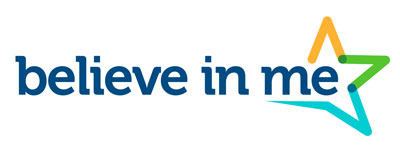Empowering At-Risk Youth Through Peer Support Networks: Transforming Challenges into Triumphs
Publish Date: September 26, 2025 0:00
At a time when many marginalized youth face the strains of isolation and inequality, peer support networks are emerging as a lifeline—one that turns struggle into strength. In this blog post, we explore how youth peer support and peer mentoring programs offer much more than a friendly ear: they serve as dynamic tools for empowerment and transformation. We’ll dive into research-backed evidence, examine real-world case studies, and share actionable steps, all while linking to the inspiring initiatives at Believe in Me. If you’re a youth program coordinator, nonprofit leader, or counselor looking to ignite change in your community, brace yourself for a journey that combines humor with hard-hitting truths.
A quick glance at Google reveals that many are asking, “What are the benefits of peer networks for youth?”, “How does peer mentoring empower at-risk youth?”, “What successful examples of peer support programs exist?”, and “How can we get involved?” This post will naturally address these frequently searched questions, breaking down the essential elements that make peer support networks indispensable.
In a world often divided by social, economic, and emotional gaps, the concept of “youth peer support” offers a refreshing remedy. Let’s uncover how tapping into the power of shared experiences and mutual support can be a game-changer for marginalized youth.
Overview: How Peer Support Networks Empower Youth
Peer support networks are built on the idea that those who face similar challenges can provide unique insights, empathy, and practical advice that professionals may sometimes overlook. These networks create a safe space where young individuals feel understood and validated. The benefits of peer networks include improved mental health, increased self-esteem, and the development of critical life skills such as communication, problem-solving, and conflict resolution.
According to research available through the National Center for Biotechnology Information (NCBI), peer support has been shown to effectively reduce stress and anxiety, offering a complementary approach to traditional therapy (NCBI, 2020). Similarly, Youth.gov highlights that peer mentoring programs can enhance resilience and promote healthier decision-making in at-risk youth (Youth.gov, 2023).
Believe in Me has long championed the transformative power of peer support by integrating peer-led initiatives into its youth programs. Their approach ensures that marginalized youth not only access structured support but also benefit from the authentic connections that only peers can offer.
Common Google Questions on Peer Support Networks Answered
- What are the benefits of peer support networks for youth?
Youth peer support networks strengthen resilience, foster a sense of belonging, and provide guidance from individuals who truly understand their struggles. - How does peer mentoring empower at-risk youth?
Peer mentoring empowers youth by creating role models from within their own community, breaking down hierarchical barriers, and encouraging mutual growth. - What successful examples of peer support programs exist?
Successful examples include school-based mentoring initiatives and community-led support groups that have turned personal struggles into collective triumphs. - How can I get involved in peer mentoring programs?
Whether you’re a counselor, program coordinator, or nonprofit leader, there are many ways to contribute—from program support to direct mentorship and financial backing.
Case Studies: Successful Youth Peer Support Programs
Let’s take a closer look at two standout programs that have harnessed the potential of peer support networks to empower at-risk youth.
Case Study 1: Believe in Me’s Peer Mentoring Pilot
Believe in Me’s pioneering efforts in youth peer support have set a high bar for community-driven initiatives. In a recent pilot program aimed at recruiting 20 peer mentors within three months, the organization demonstrated a robust commitment to creating a sustainable, supportive environment. Participants shared their experiences in weekly sessions where structured discussions and collaborative problem-solving were key components.
One participant, Jordan, a 16-year-old who initially struggled to fit in, found solace in a peer support group run by Believe in Me. Through regular, empathetic interactions, Jordan not only developed greater self-confidence but also emerged as a leader among his peers. His journey serves as a powerful reminder that youth peer support is as much about personal transformation as it is about community empowerment.
Such initiatives highlight that empowering marginalized youth isn’t a top-down process—it’s a collaborative journey where every shared story and supportive word can make a significant difference.
Case Study 2: Community-Led Peer Networks in Urban Settings
Outside of Believe in Me, numerous community-led initiatives have shown astounding success in integrating youth peer support into local systems. Consider the example of an urban-based mentoring program that partnered with local high schools and community centers. This program focused on training older students to act as peer mentors, providing guidance, and offering a trusted sounding board for their younger counterparts.
Participants reported improved academic performance and enhanced coping skills when faced with personal challenges. By fostering an environment based on mutual respect and shared experience, the program was able to break down barriers and build stronger, more cohesive communities. Evidence from similar initiatives on Youth.gov indicates that such peer mentoring programs can lead to sustained improvements in mental health and overall well-being (Youth.gov, 2023).
Both case studies underline an important fact: when mentors come from the same environment they serve, their support resonates on a deeper, more impactful level.
The Role of Peer Support Networks in the Community
Peer support networks do more than simply offer advice—they pave the way for systemic change. By fostering trust and understanding, these networks empower at-risk youth to step into leadership roles and advocate for their own well-being. In community settings, such networks serve as critical nodes of resilience, providing stability in the face of economic and social challenges.
The ripple effect of peer support can be seen in improved community cohesion, where young people learn the value of accountability and collaborative problem-solving. Whether it is through informal support groups or structured mentoring programs, the unifying power of shared experiences builds bridges across cultural and socioeconomic divides—a principle that is integral to Believe in Me’s operations.
Moreover, peer support networks often inspire broader community initiatives such as local forums, resource-sharing events, and anti-bullying campaigns. By harnessing the strength of collective experience, these programs lay the groundwork for long-term, sustainable social change.
Actionable Ways to Get Involved
If you’re a youth program coordinator, nonprofit leader, or counselor motivated to empower marginalized youth, here are several practical ways to join the movement:
- Implement Peer Mentoring Programs: Follow the blueprint set by successful initiatives like Believe in Me’s pilot program by recruiting and training peer mentors within your community.
- Facilitate Safe Spaces: Organize regular meet-ups where youth can share their experiences and gain mutual support. These sessions can be held in community centers, schools, or even virtually.
- Offer Training Workshops: Equip potential peer mentors with essential skills such as active listening, conflict resolution, and empathy. Leverage online resources and partner with academic institutions to design comprehensive training modules.
- Collaborate with Existing Organizations: Join forces with nonprofits like Believe in Me to maximize outreach and share expertise. Community partnerships can bring in additional resources and broaden the impact.
- Volunteer or Donate: Support existing peer support networks by offering your time, expertise, or financial resources. Even small contributions can have a big impact on sustaining these programs.
Each of these steps fortifies the critical support infrastructure that empowers marginalized youth, making peer-led programs a cornerstone of community resilience.
Conclusion: Transforming Lives Through Peer Support
Peer support networks are more than just groups of friends—they are transformative spaces that empower at-risk youth to take charge of their lives. By fostering an environment of mutual respect, empathy, and shared experience, these networks offer tangible benefits ranging from improved mental health to enhanced leadership skills.
As we’ve seen through the impactful case studies and research-backed evidence, youth peer support forms the backbone of initiatives like those championed by Believe in Me. These programs not only bridge the gap between struggle and success but also lay the foundation for stronger, more inclusive communities.
Now is the time to act. Whether you’re looking to launch a new peer mentoring program, support an existing one, or simply spread the word, your contribution is crucial. Join the movement, and help transform challenges into triumphs for marginalized youth.
Citations: National Center for Biotechnology Information (NCBI). “Peer Support and Mental Health: Evidence from Recent Studies.” 2020; Youth.gov. “Benefits of Peer Mentoring Programs.” Youth.gov, 2023.
Get to know more about Believe in Me and Help a Kid Today
References
National Center for Biotechnology Information (NCBI). “Peer Support and Mental Health: Evidence from Recent Studies.” 2020; Youth.gov. “Benefits of Peer Mentoring Programs.” Youth.gov, 2023.






